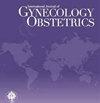Effectiveness of expressive writing therapy for postpartum women with psychological distress: Meta-analysis and narrative review
Abstract
Background
The increasing prevalence of psychological distress among mothers is outpacing the effectiveness of conventional coping methods like cognitive behavioral therapy. The efficacy of alternatives such as writing therapy for maternal psychological well-being remains uncertain due to a lack of extensive research and inconsistent findings.
Objective
The aim of this study was to evaluate the effectiveness of expressive writing therapy in comparison to standard postpartum care for alleviating psychological distress, encompassing symptoms of depression, anxiety, or stress, in postpartum women.
Search Strategy
For this purpose, seven bibliographic databases, including CINAHL, Cochrane Library, EMBASE, PsycINFO, PubMed, Scopus, and Web of Science, and gray literature were examined up to December 27, 2022 for randomized controlled trials, comparing expressive writing against standard care or controlled writing among postpartum women with psychological distress.
Data Collection and Analysis
Data was collected using a random effect model for meta-analysis.
Results
A meta-analysis of five studies with 483 participants found that expressive writing therapy was more effective than standard care or controlled writing in reducing postpartum depression and stress among women with psychological distress. Expressive writing resulted in a significant reduction in initial depression with standard mean difference (SMD) = −0.65%, 95% confidence interval (CI) = −1.08 to −0.22, Z = 2.96, P = 0.003, in comparison to controlled writing as an intervention. Regarding expressive writing versus standard care, a narrative review was conducted due to an I2 above 75%. The results showed significant improvements compared to the baseline at the seventh day and third month post-intervention. In terms of stress scores, there was a significant difference favoring expressive writing over standard care at the first month (SMD = −0.80%, 95% CI = −1.35 to −0.24, Z = 2.81, P = 0.005) and third month (SMD = −0.53%, 95% CI = −0.86 to −0.20, Z = 3.13, P = 0.002) post-intervention. Stress scores are also greatly reduced for expressive writing versus controlled writing with SMD = −0.79%, 95% CI = −1.03 to −0.55, Z = 6.48, P < 0.00001. However, the effectiveness of expressive writing on postpartum anxiety should be interpreted cautiously due to low certainty.
Conclusion
Expressive writing serves as an effective alternative for non-pharmacological intervention for postpartum women with depression and stress, but more research is needed for postpartum anxiety. As substantial heterogeneity was detected, results must be interpreted cautiously. Postpartum women with psychological distress are encouraged to use expressive writing as an affordable way to promote maternal mental health for the benefit of both the mother and the child.




 求助内容:
求助内容: 应助结果提醒方式:
应助结果提醒方式:


